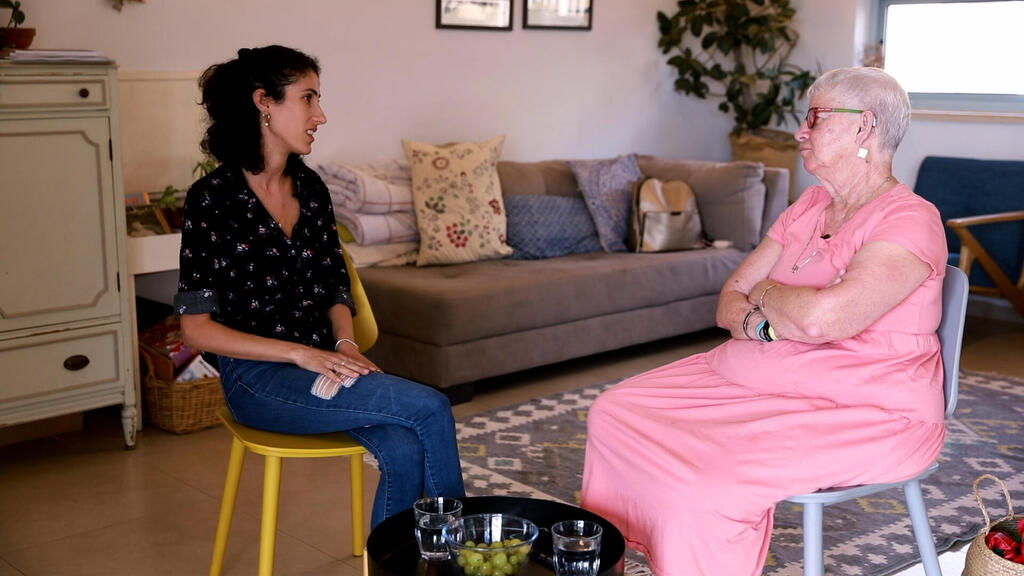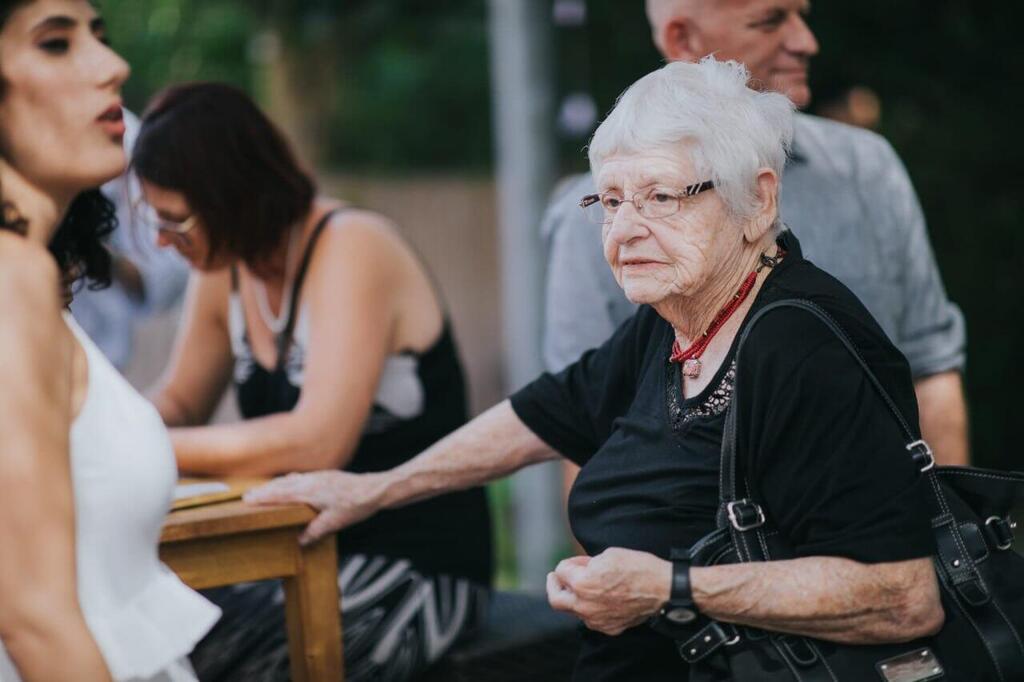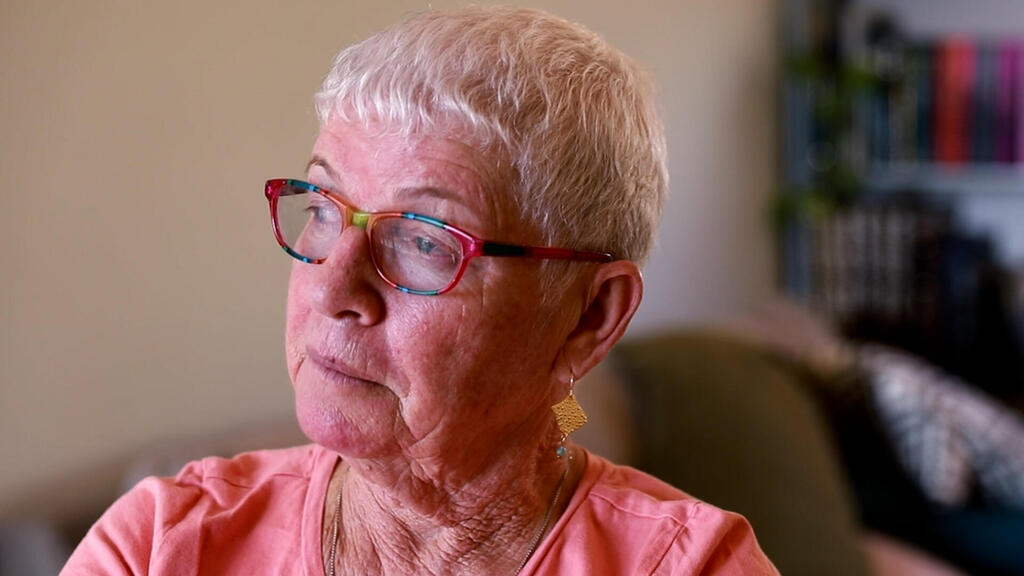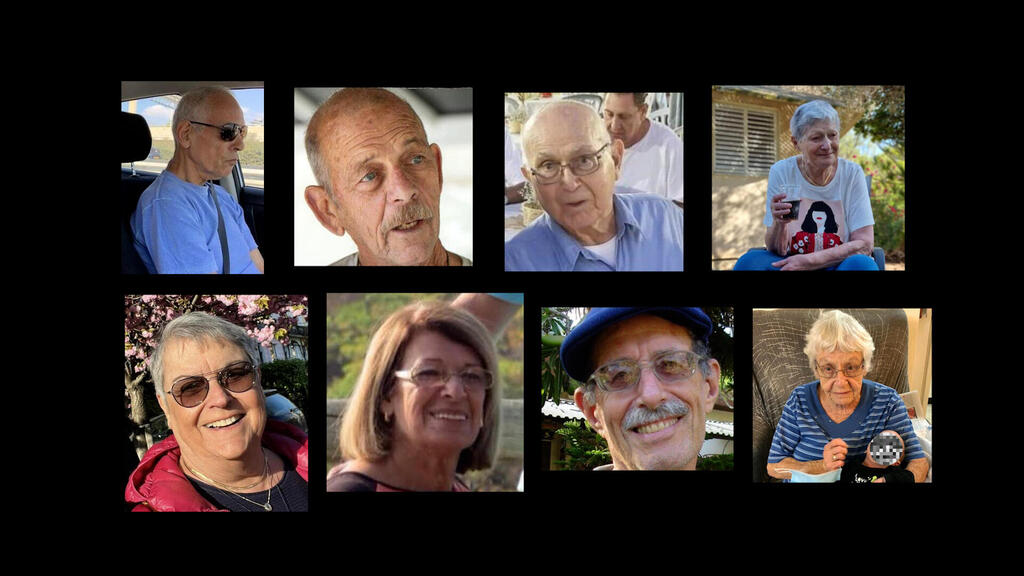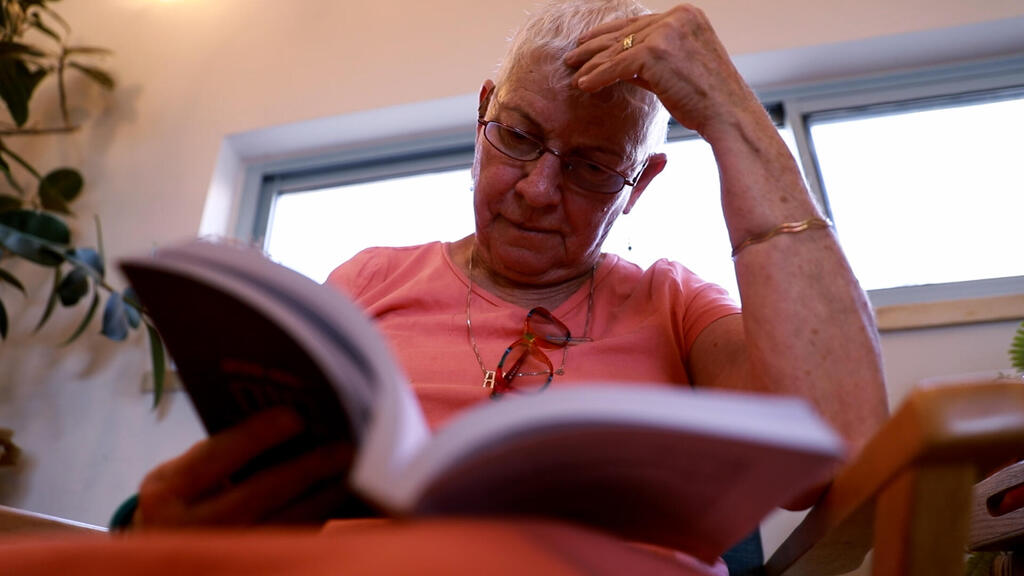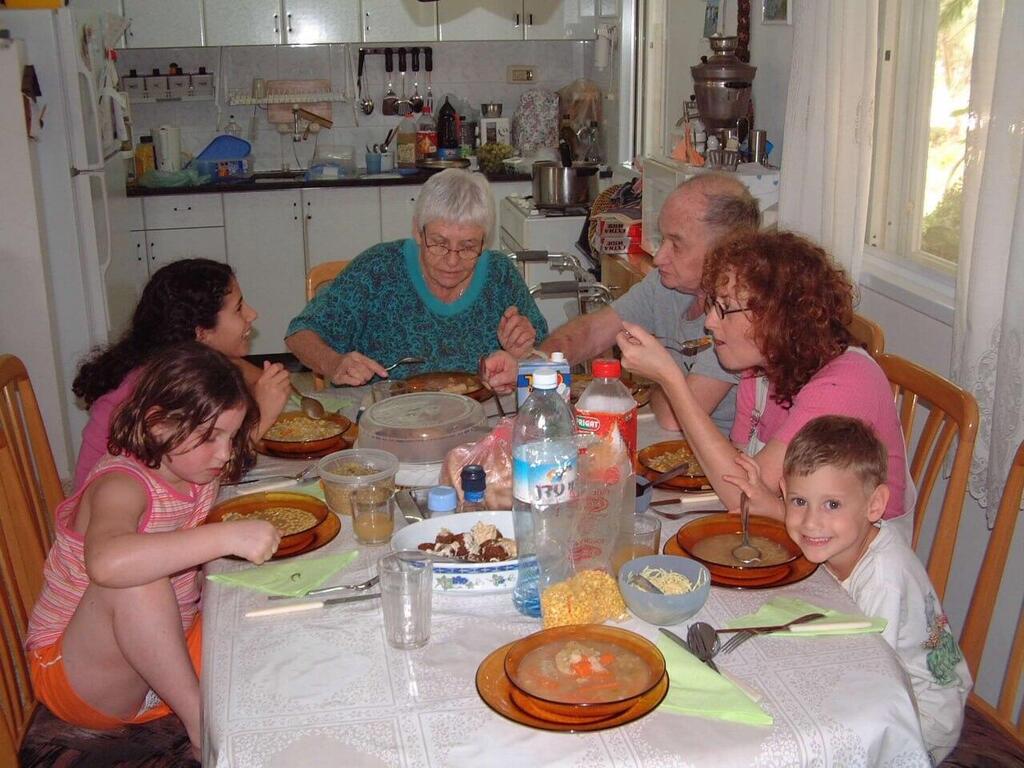Getting your Trinity Audio player ready...
More than seven weeks after October 7, we in communities close to the Gaza border, are trying to pick up the pieces and put them together again. Connecting the lost to familiar faces, turning wounds and pain into stories, and revitalizing the human connections we didn't know we had - Our shared destiny as Israelis. Only in such moments do statements that were previously trite, like "we are all one human tapestry," become tangible – when my abducted grandmother, Ditza Heiman, is someone else’s aunt, friend and neighbor.
More stories:
Suddenly, I find myself sharing my personal pain with a woman who was, until two weeks ago, a complete stranger to me. Today, Hayuta Zilberman is an important partner in my pain – she is a neighbor, a friend and someone who saw my grandmother in her last days as a free person, not in Hamas captivity.
Zilberman herself is a survivor of the terrible massacre in Kibbutz Nir Oz. She arrived at the kibbutz 50 years ago and is now 75 years old.
"I'm already getting up there in age," she says, "even choosing which chair to sit on requires thought." "It's not easy to be elderly," she adds, pausing to reflect that many of her friends in the kibbutz have to survive the horrors they experienced.
On that Saturday of October 7, she was at her home, as usual. "Around 7 a.m., we heard a rocket siren that hadn't been heard for a long time. So, we quickly moved to the protected room, and heavy rocket fire started. At some point, we began to hear Arabic near us, below the window," she says, explaining she immediately understood they were terrorists.
"We started receiving horrible calls from others in the kibbutz asking for help. We spoke with a couple of friends and experienced the death of a friend we could have saved, but we couldn't go out because we knew it was dangerous."
The terrorists also entered Zilberman’s home. "They simply couldn't find the protected room, probably because it's built in the home’s back, but they broke and looted everything they could. After 11 hours in the safe room, we received a message that Nir Oz was recaptured by the IDF.”
"What do you think about when you realize how many of your friends were abducted?" I ask, trying to put feelings into words. "It doesn't cross your mind at all," she says. "It crosses other places – in the stomach, the heart, the soul. It's not something you can grasp or understand."
As of now, there are 21 elderly captives over the age of 70 in Hamas captivity, members of Kibbutz Nir Oz. Among them is also my 84-year-old grandmother, Ditza Heiman, a founding member of the kibbutz. A generation that agreed and wanted to stay even when faced with danger.
"This is home. Here is the best, here is most comfortable," she used to say. "Where else will we go?" On that same Saturday, my grandmother was in the protected room when contact with her was lost around 10 a.m. Toward noon, someone answered her phone in Arabic. Then, the understanding that maybe she was abducted begins to set in.
In the evening, we realized that her neighbor heard her calling for help, but he couldn't do anything; he was one against many. A few days later, we watched the video that Hamas released, where she’s seen being abducted by terrorists, led from behind her house and entering Gaza bewildered, alone. The very thought of those moments she went through is hard to bear. "It can't be grasped," Zilberman says, "It's a desperate lack of control."
It’s impossible to ignore the physical element because my grandmother, despite her strong spirit, relies on a walker and requires medication. "It's hard for me even to imagine her lying on a mattress on the floor and getting up. It's physically impossible to take care of yourself in these conditions."
Unfortunately, my grandmother isn’t the only one. Yaffa Adar, 85, who lives right next door to my grandmother, is even older than her and was also kidnapped. "Yesterday there was an interview held with her doctor, so I can say what he said publicly – that she has heart disease and needs very close medical care. Someone was with her every day for a few hours to help her with mobility – to walk her dog, to host her friends. And I hope she doesn't know, but her grandson is also kidnapped."
Zilberman tries to avoid watching Hamas propaganda videos or pictures of her friends shown on hung posters. "It made me sick. I also saw the video of Adina [Moshe, 72], on a motorcycle between two terrorists, and it shocked me. She’s a woman my age who’s sick and in need of medication. She was hospitalized with several heart conditions. She can’t cope with this, after her husband was murdered in front of her before she was taken.”
“I hope she can muster the strength she needs because I do see her physically capable of taking care of everyone. She is Nir Oz’s best kindergarten teacher. I hope she takes care of all the children there," she adds.
"Being elderly means coping with difficulties in things that seem routine and easy for everyone – even if you’re completely healthy. Getting up from a low chair is a problem. Tying shoes, trimming toenails. I think every elderly person needs chronic medication to live their daily lives."
"I hardly think there’s anyone in Nir Oz age 75 and above without a personal room in the clinic. There’s a day when they all come to take their medications, and everyone gets to meet." This is without mentioning that in Gaza there is a lack of hygienic conditions, clean air to breathe, necessary hearing or vision aids, food fit to the personal needs of each elderly person, and provision for heating and cooling, among many other factors that need to be taken into account.
"I hope they have at least some space to walk so they won't develop edemas or muscle issues. I can imagine that swollen legs from lack of movement and walking can be an issue," she says, thinking about the implications of being with strangers.
"They are no longer at an age where being together can do them good; they’re being exposed at a level they’re not familiar with, especially at such a low point. I don't know how they cope with this. I hope that being together at least alleviates their feeling of loneliness."
How do you imagine the day they come back?
"Look, it will be joyful, but it will be very mixed emotions because we lost a lot of people. They’ll come back, but in various forms of themselves. They won't return as they were. When I visited Yocheved Lifshitz, for example, the first thing she said was, 'I’m still there, I’m there. My body left, but in my soul, I’m there.'”
Since the start of the war, Zilberman has been moving between Eilat, with most of the kibbutz evacuees, and her children's home, without a constant home or stability. “We move between despair and hope, between sadness and a little happiness, between very great frustration and anger to apathy. I defined it as 'living in death.'"
So, what would you consider as a victory in the end?
"Oh, I don't like that word at all. there is no victory. We lost decisively on all levels and all parameters. It's a big mess. There’s no victory here. I really want to hope that someday we can return to Nir Oz. They ask me, 'Will you go back to Nir Oz?' I said, 'If Nir Oz exists, I’ll be there.' I want to spend my days living in a place I love, and I will live there."



